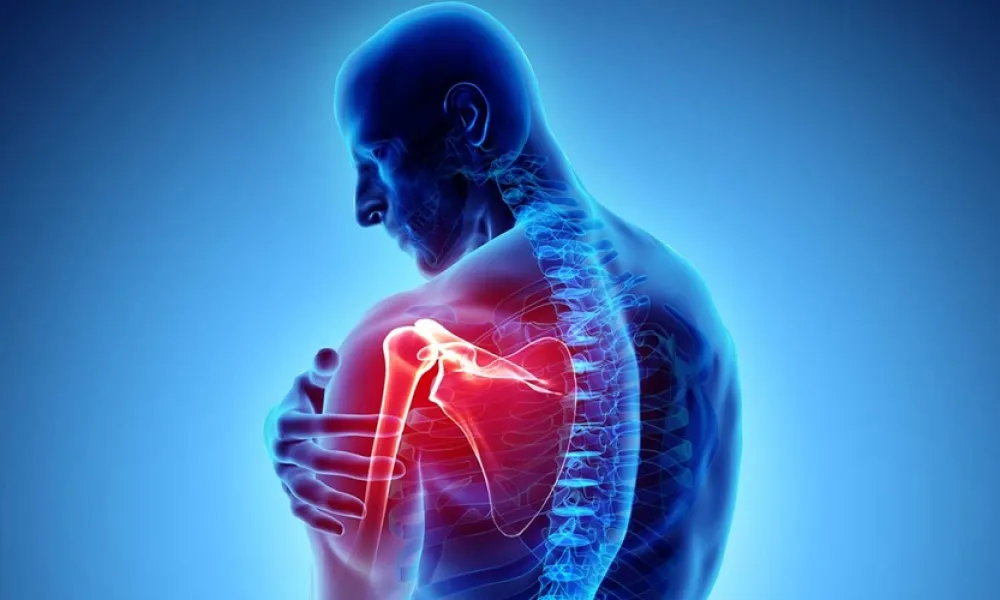
Shoulder Pain from Rotator Cuff Tears
Shoulder Pain from Rotator Cuff Tears
The shoulder joint has more flexibility and a wider range of motion than any other joint in the body. This is due in large part to the rotator cuff, a group of four muscles and their tendons.
The muscles making up the rotator cuff wrap around the shoulder joint providing stability and guiding shoulder movement, similar to the motion needed to reach behind you and close a door.
Rotator cuff tears are one of the most common causes of shoulder pain for people over age 40. There are two types of rotator cuff tears: chronic and acute.
Chronic tears are more common and occur gradually over time as a result of repetitive overhead motion like painting, lifting, swimming, pitching or tennis. An acute tear is caused by a direct injury to the shoulder.
Because chronic tears are gradual, the pain associated with the tear is often also progressive. To start, the pain may be mild and only experienced when reaching or lifting. Over time, the pain may become more intense and happen even when the shoulder is at rest. Weakness, stiffness and popping sensations in the shoulder are also common.
Rotator cuff tears caused by injury are associated with an immediate snap or pop followed by pain and the inability to fully move the shoulder.
To determine if you have a torn rotator cuff an orthopedic specialist will perform an examination and use x-rays or other imaging studies, such as MRIs.
Depending on the severity of the tear, non-surgical and surgical treatment options are available. An orthopedic physician will work closely with you to determine the treatment options best suited for your injury and activity needs.
Orthopedics is the area of medicine specializing in the diagnosis and treatment of bone, joint, tissue and nerve disorders, including those in the shoulder. If you are experiencing persistent pain and weakness in your shoulder and feel you may have a torn rotator cuff, call Proliance Orthopedic Associates at 425-656-5060.
For more information about rotator cuff tears, click here.





